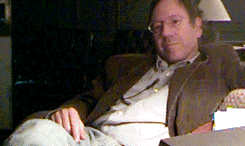
 |
 |
|
16-Mar-2004 |
|
The Jewish and the German police performed the snatchings. Initially, the Germans did it. Later, when the Judenrat got into it and had to give the determined quota, the Jewish police carried it out. The snatchings were done in the streets and houses, and at night, with a system of manhunts, both with and without prepared lists.
Yitzhak Zuckerman ("Antek"), A Surplus of Memory: Chronicle of the Warsaw Ghetto Uprising, Translated and edited by Barbara Harshav, University of California Press, Berkely and Los Angeles and Oxford, 1993, p. 134. |
|
But the Jews, the Jewish police, did the despicable work of the Germans. Some people try to defend them, others accuse them. What do I think is our great guilt, my guilt (since most of my comrades are no longer alive)? Our guilt was that immediately, from the first day, we didn't begin our harsh war against the Jewish police! Would we have saved the people? No! Absolutely not. But clearly the Germans wouldn't have done the job so easily or so fast, without the Jewish police. Because the Jews would certainly have run away from the Germans, but, when they saw a Jewish policeman, it didn't occur to them that he would lead them to their death. [...] All we had to do was kill them. If a few of them had been killed, others would have been afraid to join the police. They should have been hanged on lamp poles at night, to threaten them; but we didn't. We could even have sent our boys to ambush and scare them; but we didn't do that either. And there's a supposedly "legal" argument that anyone who didn't follow orders was threatened with death. But what danger faced the police force? At most, what happened to all Jews. I never forgave myself for not doing what we should have. That was the situation up to a certain period. Later, when we did start going that way, it was too late. We should have been selective, since I don't say we should have killed all of them; but it would have been enough to execute a few of them, really execute and scare them. This way, we would have forced the Germans to come into the ghetto and do the job with their own hands. Yitzhak Zuckerman ("Antek"), A Surplus of Memory: Chronicle of the Warsaw Ghetto Uprising, Translated and edited by Barbara Harshav, University of California Press, Berkely and Los Angeles and Oxford, 1993, p. 192. |
|
I was young but, nevertheless, I had a terror of the Jewish policeman. At first, they didn't take young people and then, they did, if the daily quota of people wasn't filled. The Jewish policeman was assigned a "quota of skulls."
Yitzhak Zuckerman ("Antek"), A Surplus of Memory: Chronicle of the Warsaw Ghetto Uprising, Translated and edited by Barbara Harshav, University of California Press, Berkely and Los Angeles and Oxford, 1993, p. 196 |
|
61. There is evidence of this in David Lewin's diary: "I have heard there was an assassination attempt on the chief of police Szerynksi. He was wounded in the cheek. According to rumors he was wounded by a Pole from the Polish Socialist Party disguised as a Jewish policeman. Today leaflets were distributed against the Jewish police, who have helped to send 200,000 Jews to their deaths. The whole police force has been sentenced to death" (Lewin 1989:162). 62. Ainsztein (1979:59) maintains that: "The importance of the attempt on Szerynski's life cannot be overstressed.... The resistance organizations in the Warsaw ghetto--both the Jewish Fighting Organization and the Jewish Military Union [the Revisionists]--had no doubt about their priorities: both concentrated on the elimination of Jewish traitors as a first step to the planned battle against the Germans and consequently before the end of 1942 they replaced the Judenrat as the leading authority inside the ghetto." 63. Yakove Lejkin (Leyken): An attorney, assistant to Szerynski, who worked diligently to carry out the Great Aktsia. According to Ringelblum, he was "a little man with a small body and small head, was completely corrupted by his power. He became savage, he beat mercilessly policemen and ordinary Jews. Those who saw him during an Aktion noticed that there was no sorrow in his face. On the contrary, he looked as though he liked the resettlement operation, as though he enjoyed the whole business" (quoted in Ainsztein 1979:41). Stanislaw Adler, however, described him as "ambitious, capable, well-mannered, and indefatigably energetic, but he had not gained the respect of his colleagues.... What did contribute to his rejection was his height. I can still recall vividly the caricature-like figure of little Lejkin in his jodhpurs and his canary-yellow cardigan" (Adler 1982:21). Was killed on October 29, 1942, by ZOB members Eliahu Rozanski, Mordechai Growas, and Margalit Landau. Yitzhak Zuckerman ("Antek"), A Surplus of Memory: Chronicle of the Warsaw Ghetto Uprising, Translated and edited by Barbara Harshav, University of California Press, Berkely and Los Angeles and Oxford, 1993, p. 203 |
|
Did you need weapons to kill a Jewish policeman? If you wanted to terrorize the Jewish police, wasn't it enough for two strong men to pull a policeman into a courtyard and hang him on a pole and then post announcements explaining the act?
Yitzhak Zuckerman ("Antek"), A Surplus of Memory: Chronicle of the Warsaw Ghetto Uprising, Translated and edited by Barbara Harshav, University of California Press, Berkely and Los Angeles and Oxford, 1993, p. 204. |
|
And I must repeat once more that, even if we had started the war with the Judenrat police on July 22 and done everything possible, we wouldn't have saved the people. That's not what I blame us for. Our blame is that we could have delayed the sentence, we could have made it hard for the Germans, we could have forced them to bring 10,000 Germans to do the work done by 2000 to 3000 Jewish police. In this matter, every German would have been less efficient than a Jewish policeman. He would have been more brutal, because he held a machine-gun and not a stick, and no doubt he would have slaughtered people on the spot. But our goal was, in fact, to bring Treblinka to Warsaw. If that had happened, the Jews would have done their best to run away and hide, since they wouldn't have believed the Germans; but when a simple Jew saw a Jewish policeman calling him, it was hard for him to imagine that his brother would lead him to death. Yitzhak Zuckerman ("Antek"), A Surplus of Memory: Chronicle of the Warsaw Ghetto Uprising, Translated and edited by Barbara Harshav, University of California Press, Berkely and Los Angeles and Oxford, 1993, p. 209. |